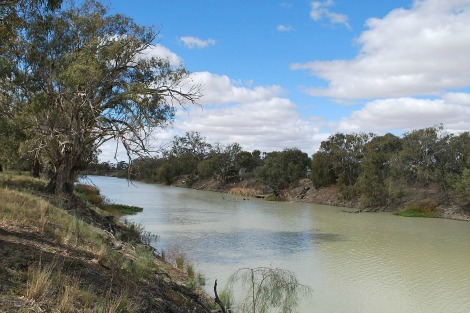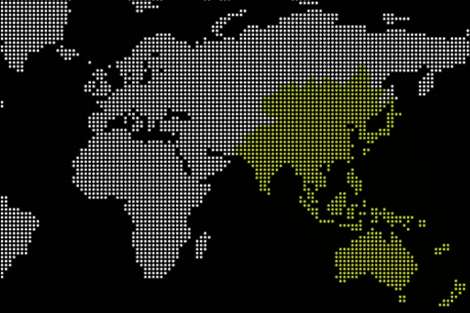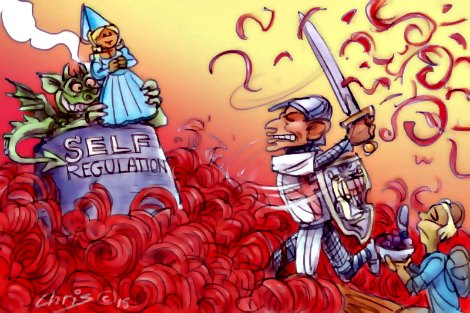Keywords: Responsibility To Protect
There are more than 200 results, only the first 200 are displayed here.
-

ENVIRONMENT
- Andrew Hamilton
- 12 November 2015
8 Comments
In recent reflection on the future path of Australia the common good has made a welcome return. At the same time the Turnbull Government has transferred responsibility for water resources, including the Murray-Darling Basin, from the Department of the Environment to the Department of Trade. The two things seem to be unrelated. But the concept of the common good has been embodied robustly in the Murray-Darling Basin plan and survives in the midst of continuing conflict.
READ MORE 
-

ENVIRONMENT
- Nicholas Low
- 04 November 2015
20 Comments
Environmental justice will be part of the discussion in Paris this month. The principle of justice says each person is of equal value no matter which nation or ethnic group they belong to. Each Australian contributes 16 tonnes of carbon dioxide per year, while each Bangladeshi contributes a little more than a third of a tonne. If the principle of justice is applied, Australia will have to move from 16 tonnes per person to about a third of a tonne, roughly equivalent to what a Bangladeshi emits now.
READ MORE 
-

AUSTRALIA
- Andrew Hamilton
- 23 October 2015
4 Comments
A particular issue in Australia is the age of criminal responsibility, which varies in different states between ten and 12. Research into brain development suggests that people cannot fully take responsibility for their actions until they are 15 years old. Responsible policy must respect the human development of the child and ensure that the response to their wrongdoing takes into account their age and does not place them in processes they can neither understand nor properly participate in.
READ MORE 
-

AUSTRALIA
- Frank Brennan
- 23 October 2015
4 Comments
Francis knows there are all sorts of issues inside and outside the Church where for too long people with power have tried to keep the lid on, in the hope that the problems and complexities will go away, often by parodying those who see the problems or complexities as small 'l' liberals or cafeteria Catholics. He delights in being joyful and troubled while contemplating big problems, calling people of good will to the table of deliberation reminding them of the kernel of the Christian gospels. He has the faith and hope needed to lift the lid without fear and without knowing the answers prior to the dialogue occurring.
READ MORE
-

- Frank Brennan
- 18 September 2015
Pope Francis's concerns are not narrowly dogmatic or pedagogical but universally pastoral. He knows that millions of people, including erstwhile Catholics, are now suspicious of or not helped by notions of tradition, authority, ritual and community when it comes to their own spiritual growth which is now more individual and eclectic. He wants to step beyond the Church's perceived lack of authenticity and its moral focus on individual matters, more often than not, sexual. He thinks the world is in a mess particularly with the state of the planet — climate change, loss of biodiversity and water shortages, but also with the oppression of the poor whose life basics are not assured by the operation of the free market, and with the clutter and violence of lives which are cheated the opportunity for interior peace. He is going to great pains to demystify his office. He wants all people of good will to emulate him and to be both joyful and troubled as they wrestle with the probl
READ MORE
-

- Frank Brennan
- 01 September 2015
1 Comment
If you want to form government in Australia and if you want to lead the Australian people to be more generous, making more places available for refugees to resettle permanently in Australia, you first have to stop the boats. If you want to restore some equity to the means of choosing only some tens of thousands of refugees per annum for permanent residence in Australia from the tens of millions of people displaced in the world, you need to secure the borders. The untrendy truth is that not all asylum seekers have the right to enter Australia but that those who are in direct flight from persecution whether that be in Sri Lanka or Indonesia do, and that it is possible fairly readily (and even on the high seas) to draw a distinction between those in direct flight and those engaged in secondary movement understandably dissatisfied with the level of protection and the transparency of processing in transit countries such as Malaysia and Indonesia. The popular evil is that political
READ MORE
-

AUSTRALIA
- Ellena Savage
- 14 August 2015
7 Comments
A friend recently died at 25. She was heavily involved in our political and literary communities, and I saw in her the very best of rage and rawness in politics. But I also saw how possessing such a sense of obligation to raw, honest, and emotionally-engaged political exploration, is exhausting. Of course it is. Popular wisdom has it that as you age, you get more 'realistic' about political matters. But that's not it.
READ MORE 
-

INTERNATIONAL
- Samuel Tyrer
- 06 August 2015
21 Comments
The Expert Panel on Asylum Seekers of 2012 said 'a regional cooperation and protection framework' should shape policymaking. Support for a regional solution also exists among academics and NGOs such as the Refugee Council of Australia. So what would such a framework look like? And when the time comes, will Australia be prepared to lead the way by increasing resettlement numbers?
READ MORE 
-

- Frank Brennan
- 24 June 2015
1 Comment
Given the ready access we have to international media and the world wide web, we can no longer plead ignorance of the trouble going on in our world. Those of us who are purist pacifists can presumably put a coherent case for eschewing violence in all cases, even were a madman to be imminently threatening the lives of our most vulnerable loved ones.
READ MORE
-

ARTS AND CULTURE
- Ellena Savage
- 19 June 2015
13 Comments
I have a friend who tells me she loves seeing what she terms 'mediocre women' at the top of their fields, especially in public, because it shows that feminism is working. Some women have made a success of themselves as men have always done, through acquiring privilege and seizing opportunities with a sense of entitlement, rather than by the myths of brilliance and sacrifice. I like this perspective.
READ MORE 
-

AUSTRALIA
- Andrew Hamilton
- 16 April 2015
76 Comments
The burning of a church offers possibilities. It would be a bold and noble gesture, exactly measured to the destruction done to the Catholic Church by priests' sexual abuse, to leave the ruined walls of St James as a shrine to the victims, a record of the evil that was done, and a pledge that never again will children be unprotected in the Catholic Church.
READ MORE 
-

AUSTRALIA
- Michael Mullins
- 02 March 2015
10 Comments
The Prime Minister has been forced to announce a proposal to toughen food labelling laws after the recent outbreak of Hepatitis A was linked to 'Nannas' imported berries. This goes against his resolve to remove red tape that represents 'unnecessary' compliance costs for business. The government has fervently derided red tape and presented regulation as the enemy, without distinguishing between regulations that are redundant and those that are needed to protect the consumer.
READ MORE 